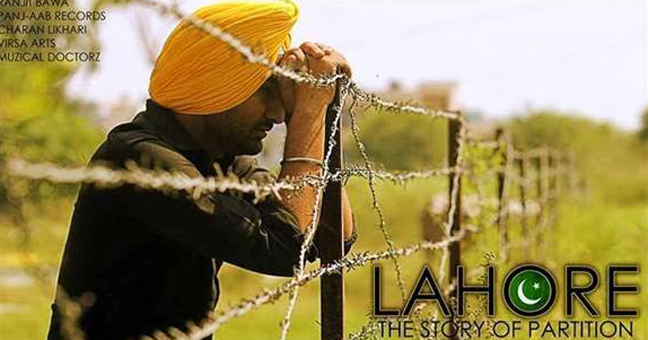The BBC has today published a news story reporting that a 54-year-old Delhi-based Sikh lawyer is seeking a ban in India on jokes that involve Sikhs.

She says that there are 5000 websites which sell jokes “projecting Sikhs as unintelligent, stupid, idiot, foolish, naive, inept, not well versed with the English language and as symbols of stupidity and foolishness“. Naturally the story has provoked discussion, but much of it looks at the case to ban these jokes of itself and does not consider the importance of the context in which Sikhs are the butt of these jokes in the sub-continent. We invited some of our regular contributors to express their thoughts, particularly in light of their own involvement in ‘the arts’.

“The biggest joke on Sikhs is the agenda the State has for the Punjab. The ongoing righteous movement in Punjab is now being curbed by giving Sikhs a spotlight in the media, with what seems like a beneficial plea to ban Sikh jokes. But this is a mirage; a quick glance at the writing style of the various reports reveals the demonising language used to create the idea of an intolerant Sikh, one being validated across the media due to the nature of “the Sikh request” to infringe the basic rights of others.
Forcing the Government to infringe the basic rights of the populous achieves no change that Sikhs want to see, but puts fear into the masses about the community just as it has for the Muslim population whose identity is now synonymous with terrorism. It is important to see the presented narratives as they are from a wider perspective, keeping the Sikh issues separate from personal grievances. Jokes of ‘Santa-Banta’ (based on Satwant Singh and Beant Singh) are reactions from the casteist Brahmins who fear the Sikh ideology and its ability to take justice. The over-sensationalised media are provoking actions that directly jeopardise the movement of the Sikh to Azaadi and this is the real joke played on the Sikh people – the mocking of our right to self govern.” –Singh Mahoon

“There are a number of issues raised by this “news” that has been reported over the last few days. The first should be for people to analyse how mainstream media covers different stories about minority groups to fit into their agenda – political turmoil and a people uprising in Punjab had little to no coverage on the BBC and when it did it was replete with loaded terms, contrasted with this story which is promoted as a featured article on the BBC website and contains no depth of the reasoning behind the emergence of these jokes. There is still a reform movement afoot in Punjab and has been every day for the last few weeks which is continuing to go unreported by mainstream media outlets, whilst this legal case – submitted by an individual – is given plentiful space and supplemented by a personal interview with the complainant, experts and others. I am not suggesting that there is a conspiracy by the BBC and other mainstream media outlets, rather pointing out that they all have an agenda to push which when it comes to minorities, serves to maintain the status quo.
Secondly, one must consider these Sikh jokes themselves. It is argued that they are similar to jokes made about the Irish in Britain, about black people in the US, and like those, the identity of the butt of those jokes is interchangeable and so is not directed personally at the Sikh community. I would argue that there is complete truth in that statement which says more than it perhaps intends to, for like the Irish in Britain and black people in the US, Sikhs are second-class citizens in India. Jokes that present down-trodden groups as less than intelligent and considerably unappealing, are made so in order to fortify that perception of them culturally, thereby enhancing their status as second-class citizens. Considering these jokes in that light is an epiphany moment that more Sikhs would do well to have.
Should this Sikh individual be seeking a ban on Sikh jokes? I can’t bring myself to advocate in favour of the ban because (1) Sikhs as a collective have not and do not recognise the authority to whom this plea has been made, and in taking up such a case ‘as Sikhs’ would be going against that; and (2) she as an individual can do as she pleases – just as anyone wishing to tell a joke of this type is free to express themselves. Freedom of speech, ‘the arts’, our right to criticise… the boundaries that we live in are constantly being tested and just as we must respect others’ right to express themselves, so must they do in turn. The biggest joke of all is India (and Pakistan). That’s the punchline. ” –Harwinder Singh Mander




